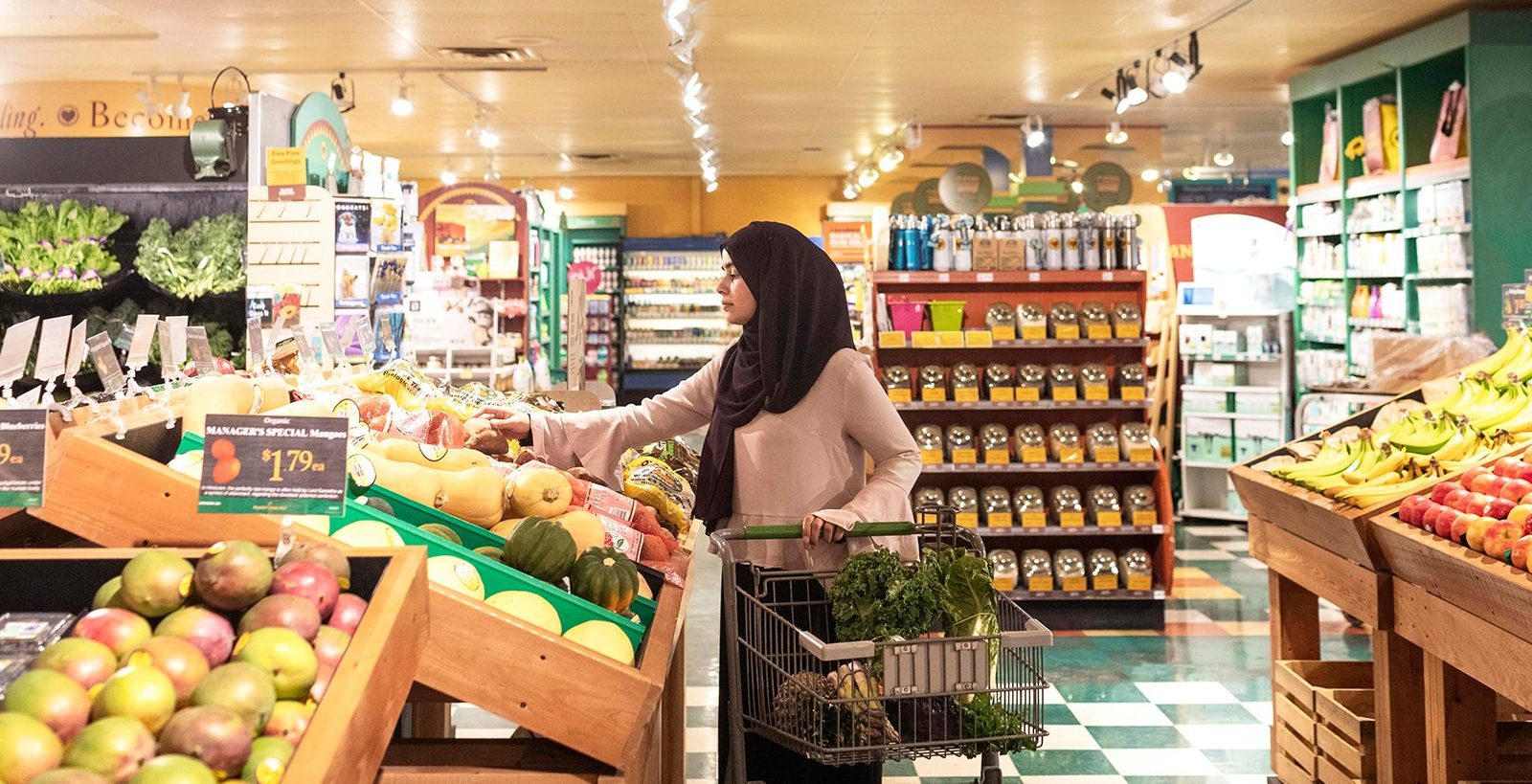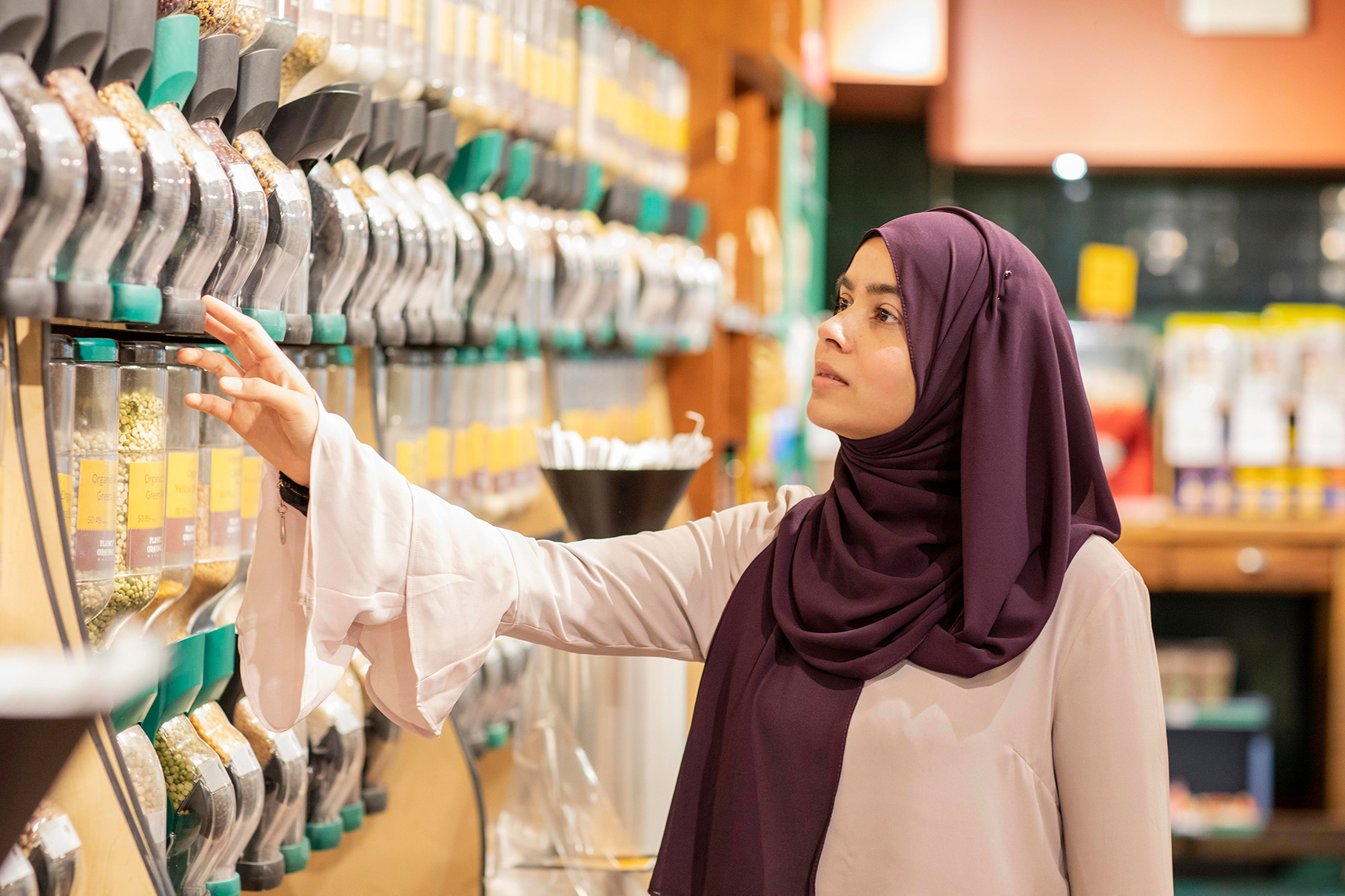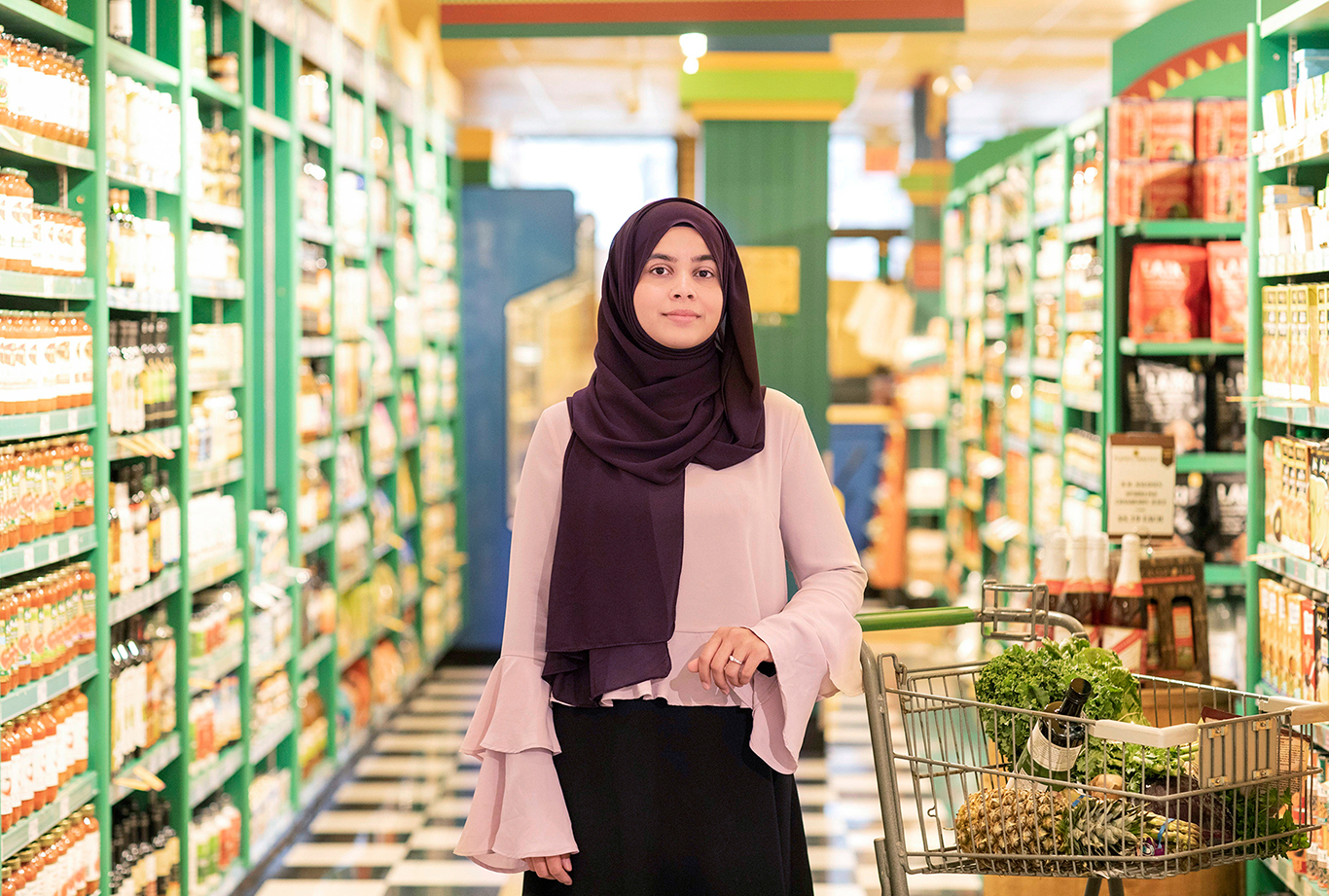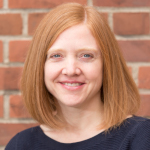When nutritionist and registered dietitian Nazima Qureshi (MPH 2015) was 15 years old, her dad was diagnosed with diabetes – a disease that is prevalent in the South Asian community. Qureshi and her mom took him to a nutritionist who was oblivious to their traditional South Asian diet, and advised eating bland dishes such as plain grilled chicken and salad. For a time, the family eschewed the dishes they loved so well in favour of the recommended North American meal plan – gone were the fried pakoras; the chicken biryani; the parathas made with white flour and ghee. But, of course, the state of deprivation couldn’t last. So Qureshi’s mom eventually figured out how to healthify their favourite recipes: using whole wheat flour in her homemade rotis; decreasing the amount of cooking oil; adding more veggies; and swapping out white rice for brown. “In the long term, people crave their own cultural foods and what they’ve grown up with and what they’re comfortable with,” says Qureshi. “So if they don’t learn how to make those dishes healthy, they won’t benefit.”
The experience made Qureshi realize that she wanted to pursue nutrition as a career – and, specifically, help those within her own culture. Today, she counsels Muslim women on how to develop a healthy lifestyle – which includes practising healthy eating habits and self-care. She also has a thriving food blog and Instagram account where she posts recipes that are a mash-up of North American and South Asian favourites: tandoori salmon tacos; turkey meatballs soused in a Malai Kofta curry; pumpkin spice chai latte. And she has been featured everywhere from CNN to Canadian Living and Self magazine, expounding on nutrition issues that affect Muslimahs and their families – such as how to stay healthy during Ramadan. Everything she does stems from the philosophy that nutrition can’t be reduced to a one-size-fits-all approach, or a calorie count, but requires being sensitive to how each individual lives in, and experiences, the world. “It’s important to look at food as multifaceted,” says Qureshi. “We don’t just eat for calories and nutrients; there are social and cultural notions to food.”

She talks about her own family gatherings on special celebrations such as Eid al-Fitr and Eid Al-Adha – her mother-in-law fills the table with such dishes as pasinday curry (marinated steak strips cooked in a flavourful sauce); a fiery spiced curry of organ meats; and homemade parathas – and the sense of well-being, comfort and identity that comes with our family food traditions. Qureshi chats about this sense of wellness over lunch at a favourite Middle Eastern restaurant in Etobicoke, Ontario, pausing every now and again to eat a forkful of Fattoush salad – filled with healthy offerings in keeping with a nutritionist’s mindset, including romaine lettuce, slabs of tomatoes and cucumber, mixed peppers, and pomegranate seeds and a skewer of barbecued chicken.
Qureshi earned a master’s of public health in nutrition and dietetics from U of T’s Dalla Lana School of Public Health in 2015. But she barely made it to Convocation Hall to pick up her degree that June: she gave birth to her eldest daughter, Khadijah, two-and-a-half weeks later. “That was one of my goals: I wanted to cross that U of T stage and get my degree,” says Qureshi. “I joke that we both have our master’s because she was there.”
When Khadijah – now three – was a few months old, Qureshi started blogging under the name “Nutrition by Nazima” while the baby was napping. (Qureshi also now has a 15-month-old daughter named Aisha.) The blog slowly gained traction: people began reaching out to her for nutrition counselling or to do presentations – including U of T Mississauga, where she does a food demo every spring for medical students, teaching them how to make budget-friendly recipes such as guacamole-in-a-bag and mixed seed salad. As Khadijah neared her first birthday, Qureshi decided to pursue her lifelong dream of running her own business – which would also provide her the opportunity to stay home with her daughter.
In the past three years, Qureshi has filled a cultural gap in the nutritional sphere: Her most popular advice centres around Ramadan, observed by Muslims as a month of fasting from dawn until sunset. She knows from experience that people steer toward high-fat, high-calorie food during non-fasting hours – and often gain weight, and feel lousy, by month’s end. In her e-book 30-Day Ramadan Meal Plan, which she co-wrote, she provides healthy recipes and advice to boost energy levels, and curb hunger and fatigue during fasting hours – which in turn helps prevent people from overindulging in, say, an exorbitant number of fried samosas after a long day. She also contributes to U of T research projects, including the South Asian Adolescent Diabetes Awareness Program to promote a balanced diet and physical activity among young South Asians (a group at particular risk of developing diabetes) in Brampton, Ontario.
Growing up in Mississauga, Qureshi steered clear of the cooking: the kitchen was her mother’s domain. Her mom made plenty of curries, and homemade roti right before lunch and dinner so the flatbread was still warm and at its freshest for her children. Qureshi found this expertise overwhelming. “I would open the cupboard and there would be so many spices and then I would ask my mom how much to use. She didn’t have measurements for anything. It was always like, “A little bit of this. A little bit of that. You just kind of know.’ And I would say, ‘OK, but how do I know?’” However, Qureshi did find her place in the kitchen as the family baker, and even took cake-decorating classes, revelling in the precise measurements that baking required and the satisfaction of creating sweet treats for her family.

The love of baking has stayed with her. Her blog features the occasional over-the-top confection, perhaps the most impressive being a Gulab Jamun cheesecake that she created for a recent Eid celebration, which takes place at the end of Ramadan. She topped a traditional cheesecake (her recipe calls for four sticks of cream cheese, heavy whipping cream and a mighty dose of white sugar) with Gulab Jamun – deep-fried dough balls soaked in rose-flavour sugar syrup.
Qureshi is routinely asked how a nutritionist can tout desserts, but it’s all part of her balanced lifestyle approach. She believes the occasional sweet concoction should be enjoyed, not made verboten. “I don’t want my children – or any of my clients – to think, ‘Oh, food is good and bad.’ When I eat chocolate cake I’m not being bad. It’s just dessert. I want them to have a really well-rounded relationship with food.” She also talks about following the rhythm of the seasons when it comes to her baked goods – and starts from ground zero, when she can: visiting an orchard to pick the apples for pies or a field for pumpkins for pumpkin chocolate chip cookies in the fall. “And I love starting from scratch as much as possible – like making the crust for an apple pie,” she says. “I just love the whole process.”
Many of her clients come to her looking to lose weight – but Qureshi always redirects the conversation from one of shedding pounds to developing sustainable eating habits. From Burnout to Bliss: A Muslim Mom’s Guide to Self-Care (an ebook she co-wrote) has a starting position of loving your body the way it is – a struggle that can magnify postpartum. It also advocates practising self-kindness and valuing yourself enough to take care of yourself. While the book is written with Muslim moms in mind, many of the tips, and certainly the overarching message, have a universal resonance. “I don’t think I ever thought about self-care until after I became a mom. Then it becomes something so important that we need in our life,” says Qureshi, who also runs an eight-week lifestyle-transformation program for moms. “A lot of women come to me with the focus of, ‘I want to lose the baby weight,’ but I’m like, ‘What you really want is you want to feel happy and balanced and content, right? So let’s use that as the main focus.’”
Qureshi’s daughter Khadijah is now her sidekick in the kitchen. She helps her mom cook and bake aplenty, from nutritious mains to their most recent baking feat of banana muffins. And both girls accompany their mom on such foodie excursions as apple picking for pies. “Memories are often associated with food: Our family used to make this, or we used to do this in the kitchen. We all celebrate around food,” says Qureshi. She adds firmly: “I want my children to have these well-rounded memories.”




5 Responses to “ Lentil Soup for the Soul ”
Like Nazima, I crossed U of T's Convocation Hall stage when I was 34 weeks pregnant with my twin boys. All I wanted to do was make it there and back to my Calgary home to deliver them safely, which happened thanks to a couple of helping hands getting me on and off the stage.
It's been a gift to read this article and identify with another mom who earned her master's degree (mine is from OISE). I also appreciate the cultural importance of raising your family on tradition and food in a healthy way.
Thank you for sharing this story.
Shehna Javeed (MEd 2007) writes:
Thank you for featuring Ms. Qureshi and her reflections on her authentic life and career. I focus on healthy eating myself in the 30 days of Ramadan -- more than I do at other times of year. I appreciate the cover photo as well showing Ms. Qureshi. Some might say, “What does it matter”? But I can tell you that representation does matter.
I talked about my settlement experiences, as well as those of the students I advise, and intersectionality in a TEDx talk at UTSC last Saturday, so it was apt timing to see this article in the magazine.
Such an informative and inspiring story! Nazima has gained another follower on her social media accounts.
Interesting topic. A healthy society doesn't mean eliminating cultural cuisines out of our diet but replacing them with healthy alternatives.
"We don’t just eat for calories and nutrients; there are social and cultural notions to food." I strongly believe in this. Making traditional foods healthier is the best way to develop sustainable eating habits.